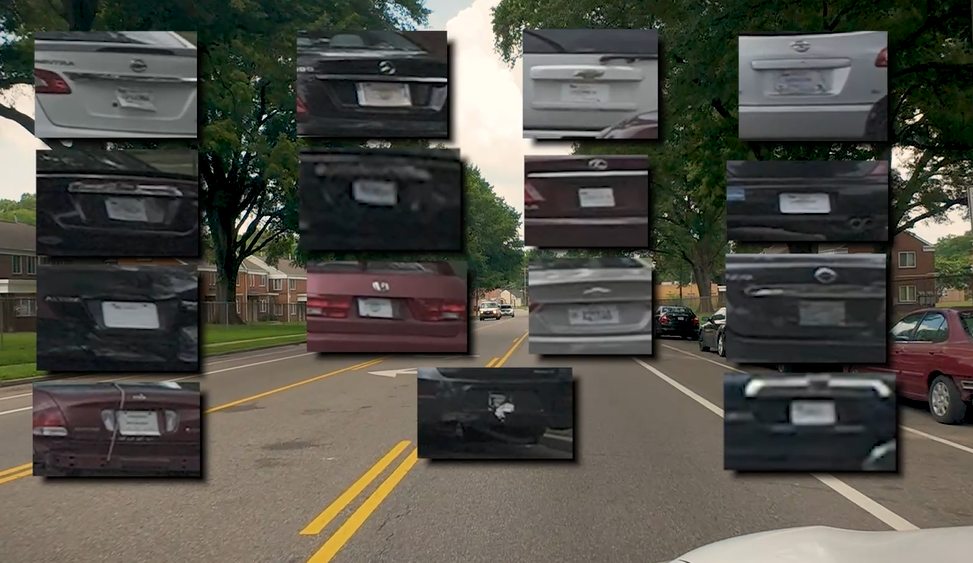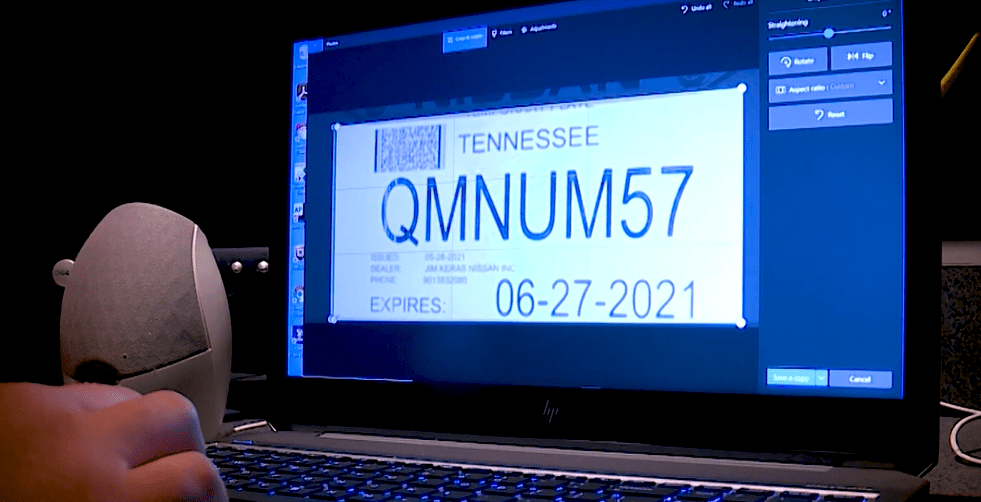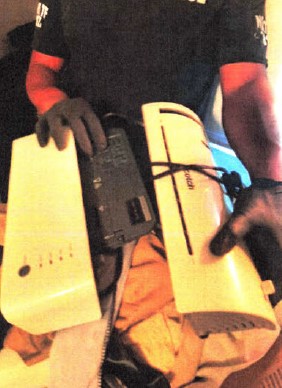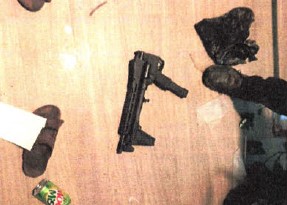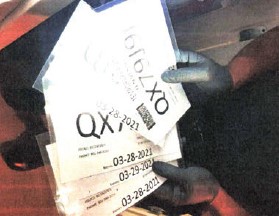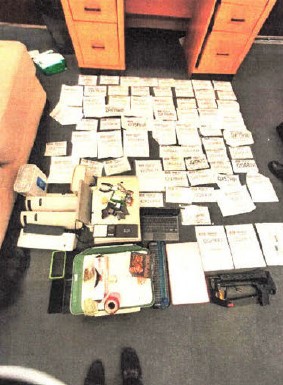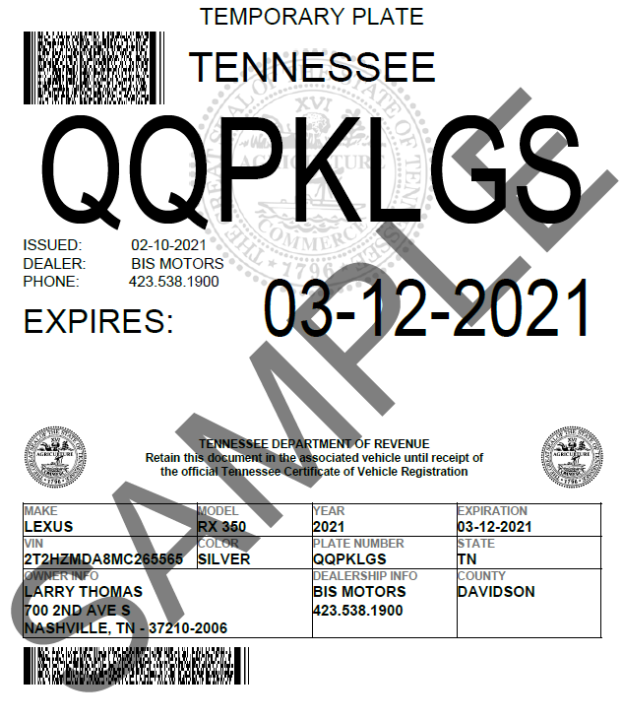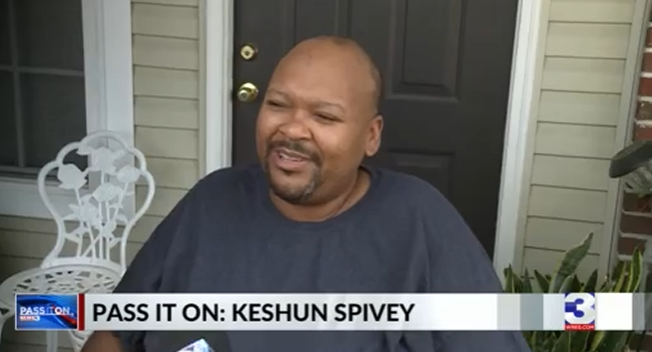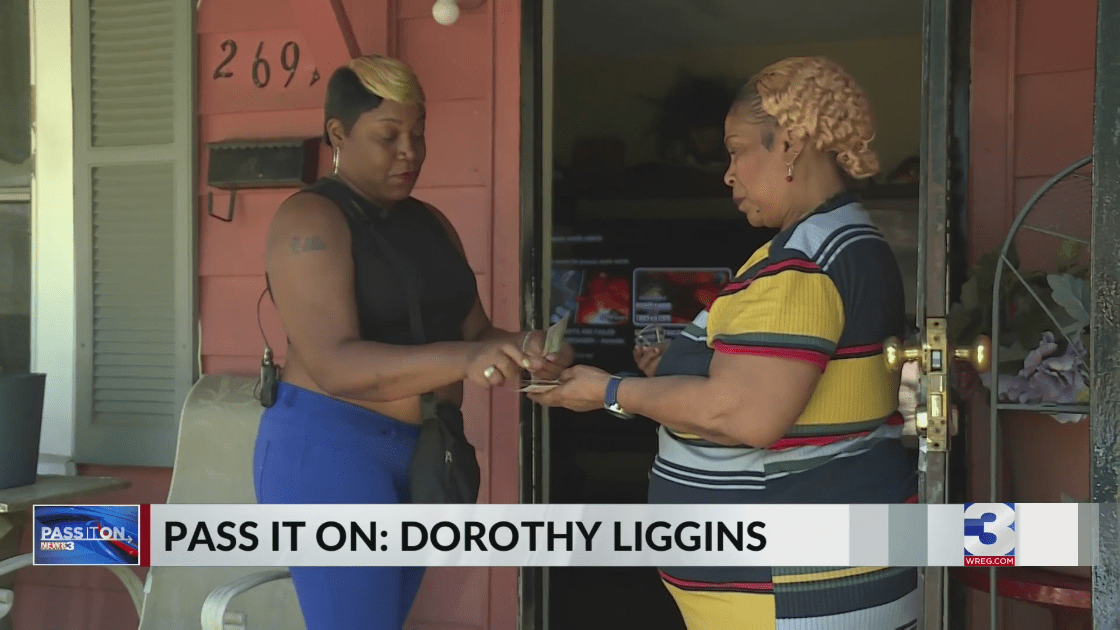MEMPHIS, Tenn. — There’s been a substantial decline in car registrations in Shelby County this year compared to last, according to an elected leader.
WREG Investigators dug deeper to find out why.
“Right now, there are just under 600,000 vehicles in Shelby County, which is about a 100,000 drop compared to last year,” Shelby County Mayor Lee Harris told the commission in June.
That’s a 17% drop. It’s caused the county to lose millions in revenue. Mayor Harris proposed increasing the wheel tax $5 to make up for it.
“There’s a lot we can’t explain at this time, but I don’t necessarily think that all of that is the result of somebody not doing their job,” Mayor Harris told Your News Leader.
Instead, he points to population decline.
“It’s just population decline. As we track the numbers from year to year, we have just seen some level of exodus,” he said.
Shelby County led the U.S. in population decline last year. Census data shows the county lost 20,000 people between 2020 and 2024.
Still, that would mean those 20,000 had registered five cars each to make up for the a large decline.
Drivers gave another theory. Temporary drive-out tags seems to be a permanent fixture on Memphis roadways in recent years.
We’ve seen them all over the city, at stop lights and on interstates, the white paper flapping in the wind.
In one small stretch in North Memphis, we counted 15 plastered on the back of parked cars.
Temporary tags exist so that people who buy a car can drive it before receiving an official, metal plate. Turns out, that’s not always the case.
Law enforcement told us many of those paper tags you see are expired, fake or stolen.
They said they’re used to skirt taxes and vehicle registration fees or help the driver can go undetected.
“It’s been a problem for years and is an ongoing problem now,” Shelby County Sheriff’s Office Sgt. Matthew McDuffy said.
He said criminals put the fake tags on stolen cars or slap them on a car when then commit a crime. It makes their job harder and makes it harder for a victim to get justice.
“Whatever crime they’re committing is going to involve a vehicle, right? Eyewitness accounts can tell us what vehicle they saw. Without a tag that goes to that vehicle, it’s hard to trace them back,” McDuffy said. “Makes it way easier to get by with the crime, especially violent crime.”
McDuffy said people are making the tags or buying them on the black market.
Under Tennessee law, using or possessing a fake tag is a Class E felony, punishable up to six years in jail.
“We make the arrest when we when we find it, and it’s out of our hands. When you make the arrest, it’s out of our hands,” he said.
In 2022, a major, multi-agency investigation landed a couple behind bars. We uncovered the evidence officers turned over to prosecutors.
These pictures are what they found in the apartment including two printers with fraudulent tags still on both printers, a laminator, a pink HP computer, which contained a program for making drive-out tags, a loaded gun and drugs.
They also noted two more printers in a closet and 236 fraudulent tags scattered throughout. The pair admitted selling the fake tags for $10.
Erica Sanders was charged with 236 counts of altering, falsifying or forging auto theft titles and one count of unlawful possession of a weapon.
Cory Walton faced those same charges plus additional drug charges.
The case never went to trial. In 2023, Walton pleaded guilty to just one count of forging a fake plate. He was sentenced to 15 days in jail. Sanders entered a guilty plea the next year for that same, single charge. She got 2 days time served.
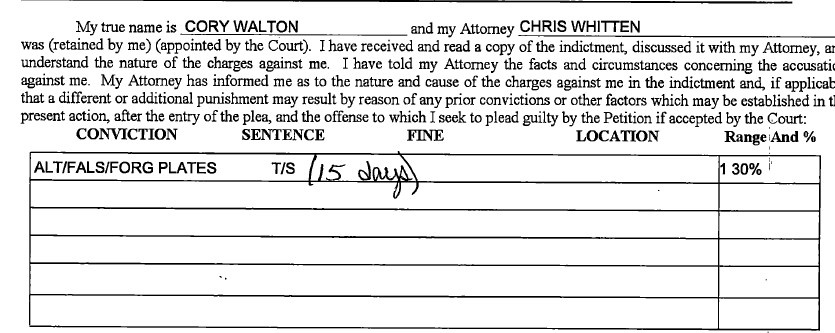
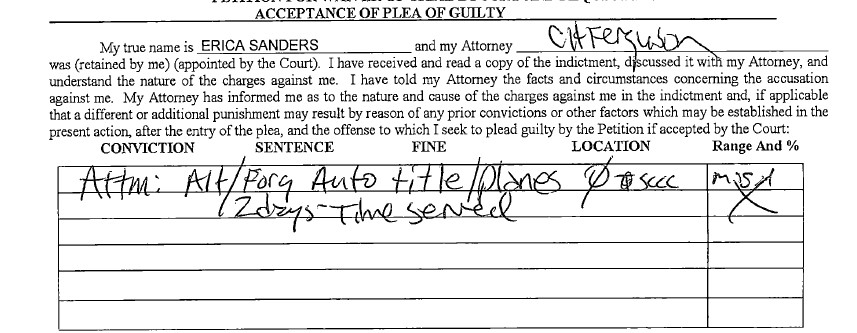
It’s unclear how widespread this problem really is. We’ve asked MPD for the number of people they’ve nabbed in the last couple years for a fake or altered plate. We’re waiting to hear back.
“Our officers do pull individuals over,” Memphis Police Chief CJ Davis told council members last week.
At the council committee meeting, MPD discussed installing license plate readers along the interstate. Davis stressed they will not work on temporary tags.
“That takes a different level of response and work from our officers to address that prolific issue in the city,” she said.
The Tennessee Department of Revenue said all dealers now use their EZ tag program, which include the state seal and unique bar code. They “do not have plans to change” it.
They do, however, work with law enforcement on how to detect fraudulent tags.
“You really need to be close. You can run the numbers on the tag and see that it doesn’t come back to that vehicle, but it’s it’s very difficult from a distance,” McDuffy said.
It’s an issue not unique to Shelby County. Texas is combating the problem with metal temporary plates, and New York State Police just conducted checkpoints to check tags and wrote more than 3,000 tickets.
“That’s something that does need to be looked into,” one driver told us.
Many echo that. They want clear answers as to why there are so many fewer unregistered vehicles.
The state said their data shows vehicle registration collections have been consistent the last two years.
We requested the county’s data, and requested an interview with the county clerk. We’re waiting to hear back.
On top of these new concerns, Memphis city leaders also report for six months last year, the city’s auto fee or wheel tax increase was never collected. It created $7 million shortfall in the city’s budget.
When taxes and fees are not collected, it hurts the community. It hinders projects like a new new high schools and a new hospital.

